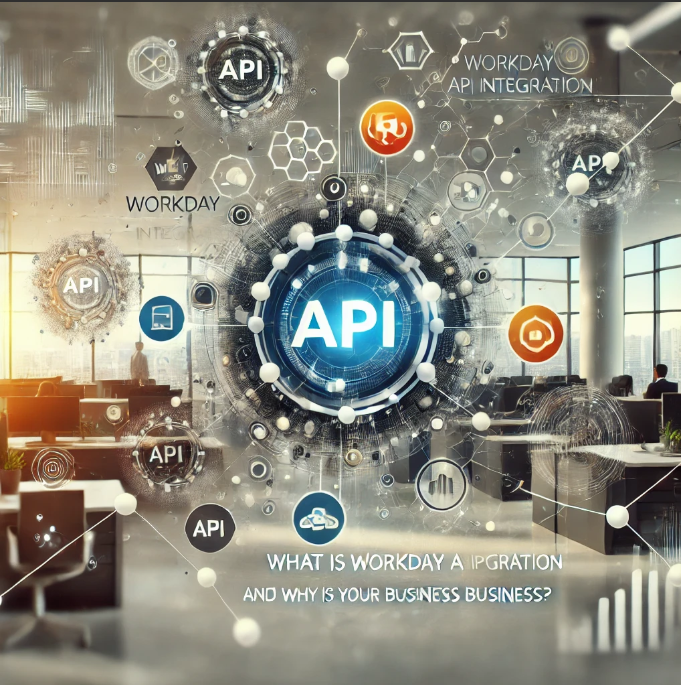Operations are surging due to technology in every sphere of life and entrepreneurs have greatly depended on such technology to maintain relevance in the market. Among many other enterprise solutions, Workday is a market leader in the integration of cloud-based Human Capital Management (HCM) and Enterprise Resource Planning (ERP) systems. However, for businesses to tap into Workday, Workday would require integration with other systems or applications. This is where Workday Integration APIs come into play.
Workday API Integration is a combination of Application Programming Interfaces (APIs) for other external platforms with Workday. These integrations enable businesses to automate workflows, synchronize data, and enhance overall operational efficiency. So let’s understand what Workday API Integration is, its functioning, and the reason your business requires it.
What are APIs for Workday Integration?
Workday provides a set of APIs—both SOAP (Simple Object Access Protocol) and REST (Representational State Transfer)—that allow developers to connect Workday with external systems. These APIs provide security and automate tasks such as updating employee records, making payroll, and enabling integration with other learning systems.
Through the use of APIs, Workday can interface with other software programs, such as payroll systems, and Custom Relationship Management so that it is easy for them to communicate either in real-time or at set intervals for batch processing.
To effectively utilize these features, Workday Integration Training is essential, equipping developers and administrators with the skills to design, implement, and manage seamless integrations between Workday and other platforms.
Important Aspects of Workday API Integration
Real-time data sharing for automation: Employees who leave a company are stored in Workday, for example; APIs enable real-time data synchronization across systems, which guarantees that one system’s operations are replicated in another. For example, when an employee is registered into Workday by the HR personnel, the information is automatically sent to the Payroll.
Accounting tasks can be automated: Processes like leave tracking and employee onboarding can all be automated through API integration saving time and limiting the chances of mistakes within the organization.
APIs facilitate ways of executing particular tasks: Consider a scenario when a new employee joins a company, the workflow of the company can be set in such a way that they employ the assistance of the IT department to set the access keys for the employee.
APIs Protect sensitive information: Workday APIs follow strict compliance regulations on security such as encryption and user authentication ensuring that sensitive information regarding employees or businesses is not compromised.
Integrating Workday API for Efficiency in Your Business
-
Complete Data Control
For businesses with several software systems, data silos are a major obstacle. To eliminate data silos, Workday API Integration integrates data across all platforms into a single interface. This means everyone, from HR to finance, has access to the same information and it is always current.
-
Time-Saving
Manual data entry and repetitive tasks drain resources and cause errors. Workday API Integration automates these actions, enabling employees to focus on strategic initiatives and executive functions, which boosts overall productivity.
-
Enhanced Employee Experience
Today’s employees expect a blend of efficiency and technology in the HR process, such as timely approval of their leave requests or Payroll processes. System integration addresses such problems, enabling faster resolution of all applications involving employees.
-
Increased Functionality
As the business expands, the amount of data and operational complexity increases with it. This ensures that the integrated systems grow with your company and can accommodate more data and other components as necessary.
-
Compliance Maintenance
Industries differ and have their specified regulations with the data management as well as the reporting entities. With other Workday integrations, firms find it easy to meet regulatory requirements by keeping computed, updated records necessary for audits or legal purposes.
-
Comprehending Information with The Help of Analytical Tools
Integrating Workday with other data analysis tools allows companies to take data out of Workday and perform analytics. This allows leaders to employ actionable data in decision-making that helps in the growth of the company.
Common Use Cases for Workday API Integration
-
HRIS Integration
Almost every company uses multiple HRIS systems that manage different aspects of employee data. Workday APIs eliminate these discrepancies by enabling these systems to communicate and share data effortlessly.
- Payroll and Finance Integration
Workday handles payroll and finance integrations, efficiently calculating wages and ensuring timely payments to employees. It also simplifies reporting for financial issues or legal obligations.
-
Learning Management Systems (LMS)
LMS systems enable the integration of applications like Workday to foster compliance, manage certifications, and track employee training activities.
-
Recruitment and Applicant Tracking Systems (ATS)
Recruitment applications and ATS integrate seamlessly with Workday, enabling businesses to advertise vacant positions, select new employees, and automate the hiring process.
-
IT Service Management
Integration with IT resolves many issues. For example, connecting with ServiceNow allows the system to automatically grant and revoke access based on events, such as hiring, promoting, or resigning an employee.
An Overview of Workday API Integration
Decoding Workday API Details: Workday comes with two types of integration APIs, REST and SOAP, which meet different integration needs. SOAP APIs, on the one hand, are more suitable for intricate and transactional activities while REST APIs are ideal for less complex and real-time engagements.
Hybrid Solutions Platforms Mulesoft, Dell Boomi, Workato, and Zapier are among the middleware tools that facilitate integration work by serving as a conduit between the external applications and Workday. These tools provide ready-made connectors and other templates thereby eliminating or reducing development time.
Data Access Control and Protection APIs Mechanisms such as OAuth 2.0 and WS-Security which are categorized as secure are used by Workday APIs to restrict data access to permitted people or systems only.
Integration Engineering These businesses can also develop bespoke integrations either through the use of Workday’s APIs or an external system so that they entirely meet the organization’s requirements.
Conclusion
The Workday API Integration is an excellent tool for businesses who wish to boost their productivity, simplify their processes, and remain competitive. Automation of processes, integration of data, and facilitating decision-making becomes much easier with Workday as an integrated solution with other systems. If you are an HR managing personnel, payroll manager, finance analyst, recruiter, or IT specialist the Workday Integration possibilities are endless.
Upgrading to Workday API Integration is not purely an investment in improving how fast the business operates. It’s also more of an investment even to the future of your firm. Going forward with how the digital transformation is rapidly progressing, businesses that use integration technology will, of course, be able to achieve good market standing.
When choosing Workday API Integration, set aside time to figure out what your business processes and systems are, and get professional experience with such integration to implement required changes using trusted middleware tools and foster seamless, secure, and scalable integrations that can eliminate glitches within the system.



